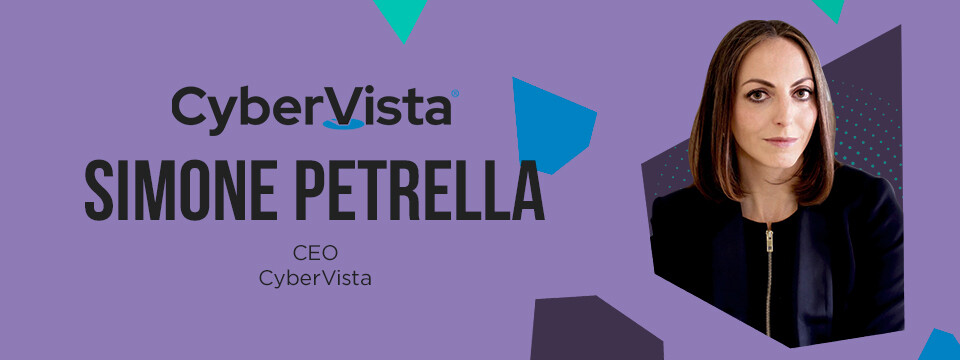Tips for Small Businesses on How to Enhance Cybersecurity
By Daniel Markuson, Digital Privacy Expert, NordVPN
According to the study conducted by the Ponemon Institute, only 28% of small and medium businesses mitigate cyber threats, vulnerabilities and attacks effectively. The study revealed that nearly half of the companies have no understanding of how to protect their data, finances, employees and customers against cyberattacks.
However, small businesses may often be even more attractive targets for hackers than larger enterprises. Here are some of the reasons:
- The owners of valuable data. Contrary to what most of the small companies may think, they do have useful data for hackers. It can be anything from financial information that can be used for fraud, to the personal details valuable for identity theft.
- The path to other companies. Often hackers target small companies for easy access into larger enterprises. It can also be a path into the data of many other small businesses.
- Easy to hack. Small businesses often lack adequate cyber-defenses, so they are frequently much easier to hack compared to larger enterprises. There are usually no security personnel and technology in place, so it’s also more challenging to detect an attack when it occurs. Effective handling of cyber threats is impossible without a strategy and strict policies applied to all employees.
- More difficult recovery. Every small business has computer-based data it needs to operate. Unfortunately, few can recover from an attack independently. However, a cyberattack might be the end of the road, especially for a small business. Therefore, small business owners are more likely to pay ransoms.
Ransomware and spear-phishing attacks are the most common cybercrime tactics used against small businesses. The first one blocks access to a computer or mobile phone until the attackers receive a ransom payment. The second one is an email-spoofing attack seeking unauthorized access to valuable information. There are hundreds of different ways to harm any enterprise, its employees or customers. Some of the most usual methods don’t even require advanced technological knowledge. For example, social engineering schemes are easy and effective to launch.
Simple tips for small business owners to boost cybersecurity
Do regular backups. Regular backup of your data in a secure location – offsite and offline – is essential. It helps to protect yourself from a ransomware attack. For small businesses with less sensitive data, even external hard drives might be enough. For more significant comfort, consider special paid backup security services (don’t trust free ones).
Secure all your smart devices. Cybersecurity is not limited to your smartphone, tablet or computer. These days, even printers and TVs are connected to the internet, so make sure these are secure as well. If the password and even username are insecure, change them. Additionally, restrict admin privileges to your networks and accounts. Each team member must have their personal credentials with an assigned role. This way you will always know who made a mistake.
Secure all your data. Encrypting your data makes it more difficult to exploit or hijack. A reliable and reputable VPN service provider, like NordVPN, SurfShark or ProtonVPN, can encrypt the online traffic of all your employees. This ensures that your data is safe when they need to access it. Many small business owners and employees work at office hubs or at home, so their data gets sent through unsecured channels. A reliable VPN can fix this problem. Of course, don’t forget that you need an antivirus and a strong firewall.
Educate your team members. It is essential to cultivate the secure mindset of every employee. Keep your team members informed about the dangers of downloading attachments or clicking on links from unknown sources. Make sure to educate them about social engineering tactics, latest hacks and phishing attacks. You can use an online cybersecurity test to understand how much your employees know about digital security.
Always update your devices. Don’t forget to update your computers, tablets, smartphones and other devices regularly. Do the same for software. New updates fix security vulnerabilities and system bugs that could cause insecure situations. Make sure to update your firewalls and antivirus.
Create a strong password. Use unique passwords for different accounts or devices. Make sure to create strong passwords and change them every three months. It’s also crucial for your company to have a strict password policy and ensure that all employees comply with it. Additionally, share some tips with your colleagues on how to create strong and reliable passwords.
An average data breach costs $3.92 million, and that’s a heavy burden on small and medium enterprises. Leaks drive away clients, plus companies end up paying millions in fines and compensations. Even though cyberattacks often target SMEs, the media focuses only on the big hacking scandals. That’s why small company owners tend to think only of major corporations with vast amounts of valuable data as the primary targets. Consequently, SMEs often do not take the most basic steps to protect their digital resources. It’s time to understand that your business’s security is in your own hands.
Bio
Daniel Markuson is a Digital Privacy Expert and Internet security enthusiast at NordVPN. Daniel is generous with spreading news, stories and tips on how to stay secure in the fast-changing digital world.







